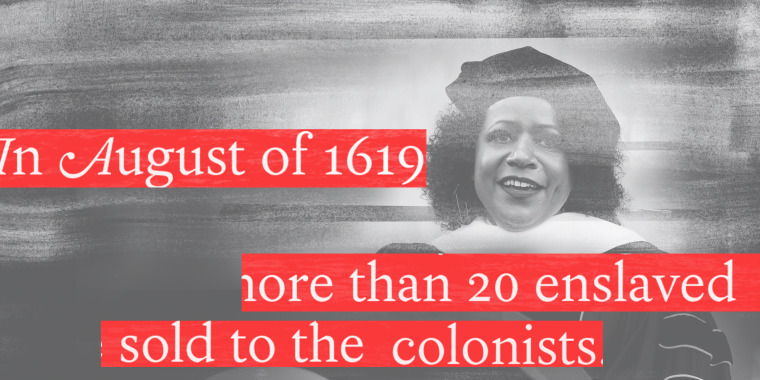The enduring myth of America is that everyone succeeds when they pull themselves up by their proverbial bootstraps. But what happens when racism cuts those straps?
The America of 2021 is definitely not a radical instigator of academic, religious or racial freedom.
The story of Nikole Hannah-Jones, a Pulitzer Prize winner and MacArthur "genius grant" winner, getting her bid for a tenured professorship rejected by the University of North Carolina at Chapel Hill is not about her shortcomings. Rather, it is a story about the rejection of an immensely talented Black woman’s excellence in favor of white conservative feelings and trustee misgivings.
It is also, by way, a story of a hapless board beholden to lobbying, an affront to academic freedom and yet another example of how the complicated, tortured history of our nation ripples throughout our present.
There is a growing tide of conservative fear and fury about the teaching of race, racism and slavery in America. The naïve but toxic belief that it is detrimental for students to learn the full history about our nation is not a new conservative narrative. What is new — and incredibly concerning — are the campaigns and organizations rallying to push back against professors and teachers.
Last summer, Confederate statues came down amid an unprecedented rally against police brutality and systemic racism in the aftermath of George Floyd’s murder. This summer, conservatives are rallying against the teaching of The New York Times’ “1619 Project” in schools, and nearly a dozen states are trying to ban critical race theory (CRT) in schools. The Southern Baptist convention even had six white seminary leaders declare that CRT was incompatible with the denomination’s statement of faith — even as they used that same statement of faith to condemn racism.
A lot of ink has already been spilled about how unfair UNC’s decision was, and how the prestigious institution should be penalized for it. There has been a sustained outcry from the faculty who support Hannah-Jones and the school’s student government. The role of the trustees and outside forces in the tenure denial has been castigated and investigated.
Many of us who study and write about controversial subjects are being targeted and punished for being outspoken about racism and sexism.
The America of 2021 is definitely not a radical instigator of academic, religious or racial freedom. Many of us who study and write about controversial subjects are being targeted and punished for being outspoken about racism and sexism. Student-led campaigns against professors have allegedly been funded by the right-wing organization the Leadership Institute. State-funded schools are now a deliberate target for these types of organizations, because it is easy to make Freedom of Information Act requests for records and write articles and blog posts that target professors and push for their censure or firing. When these organizations work together with lawmakers, they become a formidable force in influencing schools and institutions unfamiliar with their tactics.
My sympathies lie with Hannah-Jones, and not just because I worked on a chapter of the forthcoming book based on her Times project. When you have a track record of excellence and are still rejected for tenure, it can be a demoralizing experience. Watching others with lower academic production and a boring professional file get rewarded rankles.
But here’s a truth: Universities are unimaginative gatekeepers. The private American university is a corporate entity. It can resist change even as it can fight to enact it. It longs for public relevance, and yet can turn its back on potential colleagues who promise intellectual spark. And it is not a pure democracy. The faculty at UNC got it right — only to have the top officials overrule it.
It also goes without saying that white journalists at UNC have received tenure with less accolades than Hannah-Jones. As any Black woman or person of color can tell you, this happens all of the time. Many of us carry the battle scars of racial animus inflicted when the academy moves the goalposts for what constitutes excellence when files are submitted for tenure or promotion. I doubt seriously that a white man or white woman with a similar Pulitzer project in their bio would have been treated with such disrespect
UNC’s consolation offer of a five-year position helps little. The university that quietly tried to negotiate a deal with the Sons of Confederate Veterans over a statue known as “Silent Sam” once again is revealed as petty — and scared of the inescapable forces of the change that are engulfing it.
But to be truthful, most universities are.
The final truth is that Hannah-Jones is going to be fine. This slight is not about her, but about the deficiencies of her detractors and of UNC’s capitulation to them. Her 1619 book is going to be a best-seller, and she will continue to receive accolades for her writing. Much like her Twitter handle, modeled after the iconic Ida B. Wells, professor Hannah-Jones will continue to call America to task by writing the hard truths about our history and present. She’s earned that title, even if the university is too weak to extend it to her.

